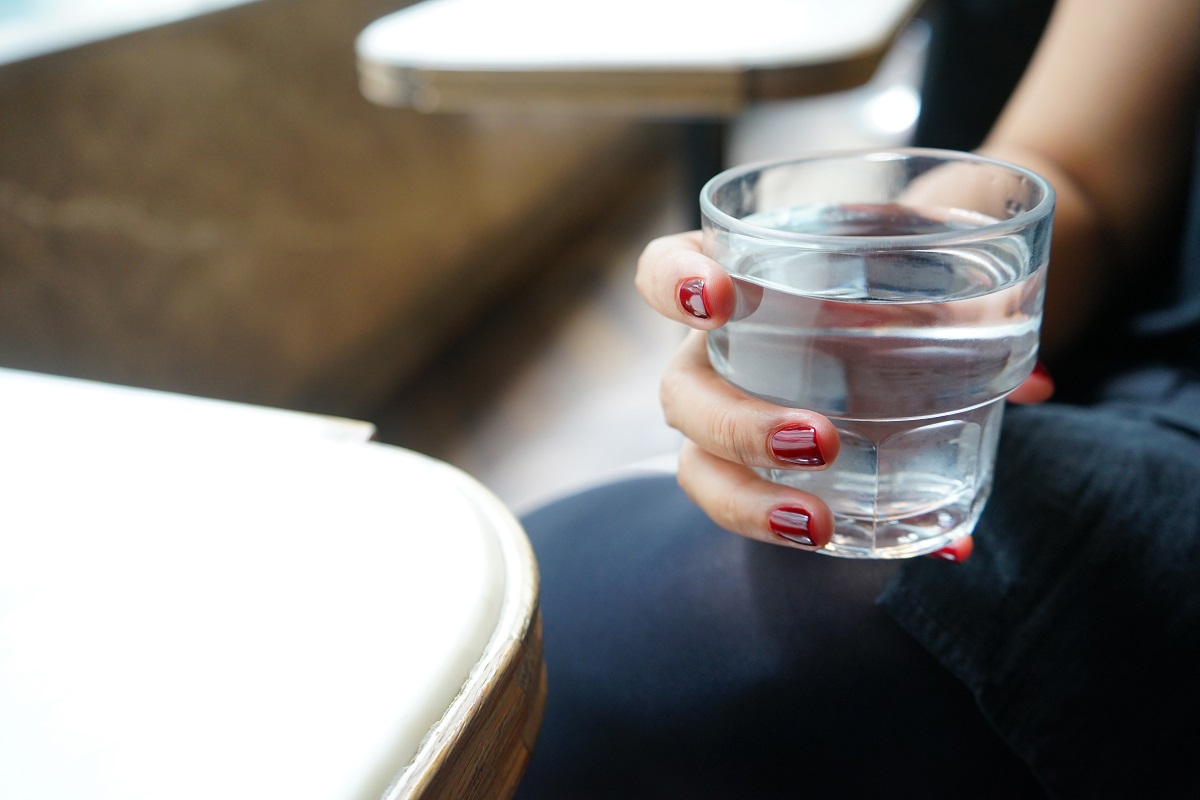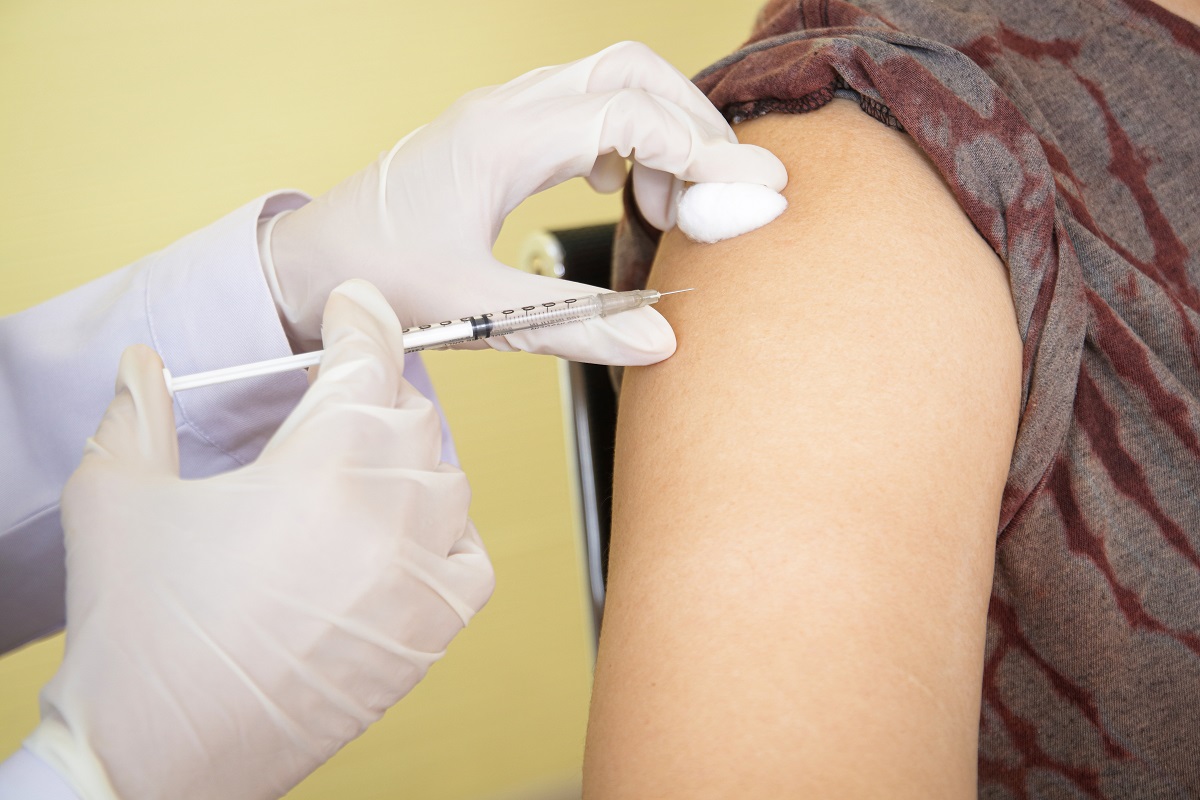Seniors are more likely to get dehydrated because of many factors, the most important being a weakened sense of thirst. But it’s equally important not to over hydrate.
Water is the source of life. Throughout our life we depend on water for the essential healthy functioning of key functions in our body like:
- Temperature regulation
- Waste elimination
- Joint lubrication
- Delivery of nutrients to cells
- Blood oxygen circulation
- Skin hydration
- Cognitive function
You become dehydrated when your body doesn’t have enough water to sustain these vital processes.
How do you make sure you balance your fluid intake?
Maintaining the right amount of water to avoid the consequences of dehydration can be a little tricky. That’s partly because you lose water through sweat and urination, and also through normal bodily functions. For example, you exhale water vapour when you breathe.
And when you lose water, you also lose salt and electrolytes. Electrolytes are electrically charged nutrients that are essential for regular heartbeats, muscle contractions, and more.
Losing electrolytes can have serious health repercussions.
Why does the risk of dehydration increase with age?
Older adults are prone to dehydration because they can experience several health or lifestyle conditions that lead to low fluid levels.
Many seniors experience at least one of the following risk factors:
1. Weakened sense of thirst
As we age, our bodies contain less water, partly because our kidneys become less efficient. (At birth, we are about 75 percent water, but an elderly body is about 50 percent water, according to an NPR science article.)
Seniors are at greater risk for dehydration because they drink less water, on average, than younger people. That’s often because seniors experience a weakened sense of thirst, so they don’t always realize when they need to drink something.
Scientists aren’t sure why this happens. But what makes this lack of thirst in elderly people particularly troublesome is that we’re generally dehydrated before we feel thirsty. So, you get dehydrated quickly because you may not always recognize the signs of needing to take a drink until it’s too late.
This reduced sense of thirst is often more pronounced in seniors with Alzheimer’s, dementia, or in those who have had a stroke. Such seniors may also have difficulties swallowing or asking their caregivers for a drink. As a result, seniors with dementia often need their fluid intake to be carefully monitored.
2. Side effects of medication
Many medications that are commonly prescribed to seniors can act as diuretics (i.e., they can increase the production of urine) and contribute to dehydration. Side effects of any medications—particularly blood pressure medications, antihistamines, antacids, and heart medications—should be discussed with a physician.
3. Incontinence issues
The risk for dehydration associated with incontinence isn’t necessarily caused by the fluid lost through involuntary urination. Rather, it’s related to the fact that many elderly people restrict their fluid intake because they don’t want any awkward accidents.
However, it’s important to note that reducing fluid intake doesn’t necessarily prevent incontinence. in fact, drinking more water may actually help some seniors deal with incontinence.
As well, when you’re dehydrated, your bladder can become more irritable and vulnerable to bacterial infection. So staying hydrated can reduce the risk of UTI’s.
If you restrict your fluid intake because you’re worried about incontinence, talk to your doctor. He or she can help you to determine how much water you should be drinking.
4. Night-time woes
Some seniors resist drinking a lot of water because of fear of falling or going back to sleep if they have to get up at night to go to the loo.
But being dehydrated is also a risk factor for falling ( it causes dizziness and fogginess).
However, it’s often a good idea to restrict fluids an hour and a half before bedtime.
5. Medical conditions
Medical issues can lead to dehydration. Examples of health problems than can result in fluid loss include diarrhoea, fever, and diabetes.
However, it’s important to keep this in mind: Dehydration symptoms in adults who are in their senior years aren’t always clear-cut. For example, some medications can affect the colour of urine. Additionally, dehydration can cause hallucinations in the elderly but so can cognitive changes from dementia or even side effects from certain medications.
Consequences of Dehydration in Seniors
You may have already experienced some mild dehydration effects. Most of us have. If so, you probably didn’t feel that you were at your best.
Perhaps you experienced some of the possible dehydration symptoms, including:
- Fatigue
- Memory problems
- Poor concentration
- Irritability
- Headache
These symptoms can appear quickly. In fact, according to research even a small drop in our body-fluid levels (as small as two to three percent) can lead to physical and cognitive problems in older adults.
The long-term effects of not drinking enough water are the factors that lead to chronic dehydration.
Elderly people can experience some of the following symptoms when they’re chronically dehydrated:
- Low blood pressure
- Dizziness
- Skin problems, including pressure sores
- Constipation
- Kidney problems, including kidney stones
- Increased risk of urinary tract infections
If left untreated, you can also die from dehydration.
Some of the severe dangers of dehydration are:
Seizures:
Dehydration can lead to an electrolyte imbalance. In elderly people, particularly those with cardiac problems, the consequences can be grave. Because electrolytes carry electrical signals to our muscles, changes to our body’s electrolyte balance can lead to seizures. Warning signs of an electrolyte imbalance include:
- Muscle cramps
- Irregular heartbeat
- Mental confusion
Shock:
Low blood volume shock (also called hypovolemic shock) happens when we experience a sudden drop in blood volume. Dehydration can lead to low blood volume, which in turn leads to a drop in blood pressure and, sometimes, shock.
Kidney failure:
Dehydration complications such as low blood volume can reduce blood flow to the kidneys, which can cause lasting damage to the renal system over time.
Heat exhaustion or heat stroke:
When we get too hot, our bodies cool down by sweating. But if we don’t have enough fluid to produce adequate amounts of sweat, we can quickly become overheated.
In general, a loss of more than 10 percent of a person’s body weight through fluid loss is a medical emergency that can lead to death if not treated.
So how can you identify potential dehydration?
Here’s one good strategy: If you experience any of the symptoms above, simply drink some water, then see if the symptoms improve in 10 to 15 minutes. (Or if you suspect that a loved one is dehydrated, make sure that he or she gets some water, then wait and look for improvement.)
You should go to the ER for dehydration when you or the elderly person in question is experiencing any confusion, unexplained irritability, or sleepiness.
Always remember that getting prompt medical care is the most reliable way to know whether a senior is dehydrated. That’s because dehydration is diagnosed in the elderly through blood tests that check their electrolyte levels and kidney functions. ( Urine tests aren’t always reliable for seniors.)
How much fluid does a senior person need per day?
The standard recommendation is to drink 8 glasses of fluid per day, but there is some disagreement.
Research suggests that elderly people who drink 8 glasses of water per day may actually be over hydrated.
Caution does need to be exercised in the elderly because many older people have reduced renal and/or cardiac function and a one-size-fit-all approach of 8 glasses might cause fluid-overload and exacerbate heart failure. In fact, heart failure patients are often fluid restricted to 1–1.5 liters of fluid per day in addition to beng on diuretics.
The European Food and Safety Agency (EFSA) has set guidelines for adequate intake of water for healthy (senior) men and women at 2.5 L per day and 2.1 L per day respectively.
Nevertheless, its best to take stock with your physician – your medical issues, medication, diet and lifestyle to determine the optimum amount of water that suits you best. Balance is the key.
Here are some tips that can make beverages more appealing:
– Be creative with your fluid intake
Many foods contain a lot of water. Vegetables, most fruits and soups can all contribute to your daily fluid intake.
Try using a little creativity by making popsicles or ice trays with fruit juice (especially since we’ve hit summer) or blending smoothies with fresh greens.
It’s also important to remember that you can drink beverages other than water to reach your daily fluid requirements.
In summer, consider chaas, aam panna, kokum, amla, jal jeera, limbu paani, juices etc. with your water intake.
– Use technology
Check out some of the many apps, such as Water Drink Reminder – https://play.google.com/store/apps/details?id=com.northpark.drinkwater&hl=en&gl=US.
There are many more that can track the number of drinks you consume in a day and notify you when it’s time to hydrate.
– Keep drinks nearby and visible
Seniors often miss out on drinking fluids because they simply forget or can’t access them. Have your own attractive glass and bottle provides a portable way to always have a drink at hand.
– Add a natural flavour to your water
Some seniors find water a bit too boring. Adding a little juice, slices of orange, lemon, a few mint leaves, or a drink mix can boost its appeal.
– Make it a ‘must do’ routine
Adding fluid intake to daily routines will make drinking a habit. For example, if you take medication, drink a full glass of water with it.
– Create a fall- prevention strategy
Discuss smart ways with your family and friends and doctor, of reaching the loo and back to bed without having to constantly fear that you may fall. This way you will feel more confident of going to the toilet.
Knowledge Is Prevention
Being aware of the risk of dehydration is the first step toward averting it. Watch for the warning signs of dehydration (in yourself and your loved ones).
Although dehydration in elderly people can be serious, it’s also preventable and treatable once you are aware of the problem.
References:
https://www.ncbi.nlm.nih.gov/pmc/articles/PMC5734130/
https://newsroom.ucla.edu/releases/study-finds-a-lack-of-adequate-hydration-among-the-elderly
https://www.essentialnutrition.com.br/media/artigos/hydrolift/22.pdf
https://academic.oup.com/ajcn/article/104/1/121/4569661
https://www.essentialnutrition.com.br/media/artigos/hydrolift/22.pdf




